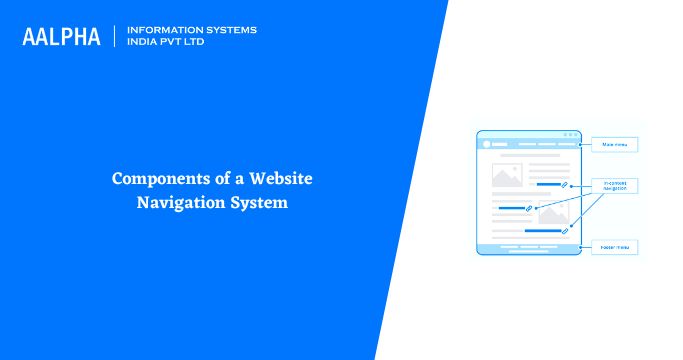Your website’s navigation is an essential factor that affects you personally, particularly from a business and marketing point of view. After all, navigation is often what stands between the user and why the user is using the system. As a marketer, one of your goals should be to reduce the size of this gap.
You should ensure that the navigation on your website offers a satisfactory experience from a usability point of view. To put it another way, you are constructing your site’s navigation so that it is understandable to the people who visit your website. Make it simple for the user to locate your pricing page if that is the goal they are trying to achieve.
What should website navigation accomplish?
In the Essentials of Interaction Design by Alan Cooper, navigation of information achieves via three effective methods: scrolling (panning), connecting (jumping), and zooming. Web Designers must facilitate the user’s movement from one location to another to create a robust navigation system and encourage flow.
The navigation should specifically compromise:
- Permit users to pick from a limited number of available pages.
- Label the pages to which navigation tabs lead with unambiguous labels.
- Adapt your website to the demands of its visitors.
- Tell individuals where they are and how to get home.
- Offer a search feature.
Navigational System Components
To accomplish the objectives, a well-designed navigational system must consist of three primary components:
-
Existing Position
This is a technique for visitors to determine where they are on a website. For instance, when a user selects a particular tab in the website’s navigation, does its appearance alter to indicate that it has been selected? Observe the following screenshot from Apple’s website: The iPod tab gets darker than the rest of the navigation when the user selects it.
-
Method of Navigating
This is a technique for visitors to determine where they may navigate a website and how to do so. It provides access to the core content parts and utilities and extraneous locations. When you visit the Apple website and click on the iPod page, you will see that the material is structured hierarchically: you may pick between iPod items and iPod-related applications.
-
Follow Path
This allows you to track your previous website visits. This is known as a home link and answers the query “How do I return to where I began?”
-
Search
This search functionality is available to visitors of the site. It helps people quickly find the information they are looking for and is symbolized by a symbol that looks like a magnifying glass.
Be careful to have a consistent look for all of these different components as you work to incorporate them into your website’s navigation. If your website offers consistent navigation throughout, users will feel confident that they can locate what they are looking for and know exactly where they are on the site at all times.
Navigational System Categories
Now that we’ve discussed the purpose of website navigation and its components let’s examine the many navigation system alternatives available to you. There are three significant classifications of navigation systems.
-
Worldwide Navigation
Global navigation is site-wide navigation that provides access to essential regions and services. It typically appears on each page and may have numerous levels of hierarchy.
-
Local Navigation:
Local navigation allows the user to explore the local area or a portion of the site. If you visit Amazon.com, for instance, you will notice left-hand navigation that enables you to navigate the current portion of the website.
-
Navigation contextually
Contextual navigation enables navigation consistent with the content (e.g., hyperlinks). Gerry McGovern, the founder and CEO of Customer Carewords, argues, “The basic aim of online navigation is to assist users in moving ahead. Not to inform them where they have been or where they may have gone.”
Navigation Patterns
You may organize your website or application in a variety of ways, depending on the context:
Your navigation relies on specific tasks. Sometimes, it’s helpful to give your site one or more task-based entry points.
- Content-Based: On each page, the navigational choices are identical. It may indicate a flat or hierarchical structure.
- Menu-Driven: A primary menu offers access to sub-modules. Navigating between displays is prohibited and primarily used for device interfaces.
- Transactional: Provides feedback on the current phase of a sequential process and the opportunity to return to an earlier step. Your design should consider how the user will navigate between screens and pages.
Guidelines for Website Navigation
What is the one rule that one should never violate while navigating a website? Avoid giving them anything to think about. To prevent visitors from feeling frustrated or confused when exploring your website, you must adhere to the best practices outlined below.
- Be consistent.
- Design for all screen resolutions
- Provide easy access to the most vital facts.
- Include breadcrumbs.
To know about website navigation system contact web development company!
Also read: How to Build Design System
